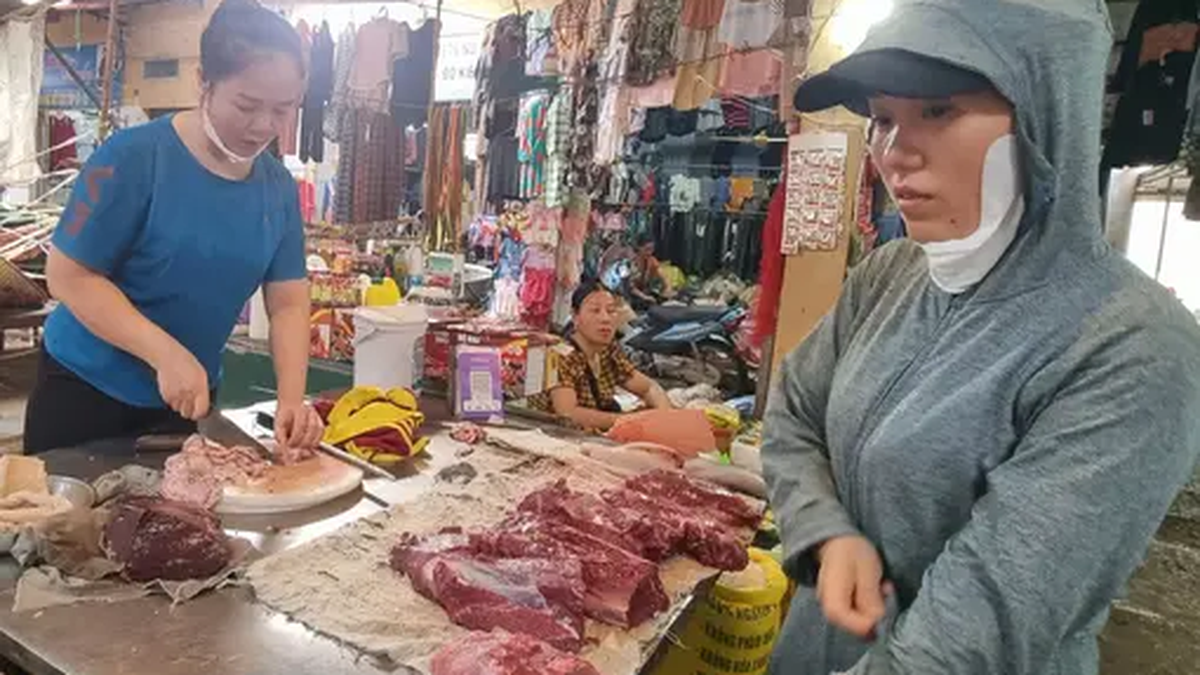Accordingly, the Israeli Ministry of Health announced that Aleph Farms Company has been approved by the government to sell the world's first steak made from lab-grown beef cells.
The Israeli Health Ministry said the approval of the meat was part of a pilot program called “Alternative Protein” conducted by the Food Risk Management Authority.
The ministry said the world 's demand for "artificially derived products" is growing, adding that it is actively working to approve alternative food sources. Israeli Prime Minister Benjamin Netanyahu hailed the move as "a global breakthrough" and "important news for food security, environmental protection and animal welfare".
Cellular agriculture company Aleph Farms, which operates in the food technology sector, will, after being granted a license, produce beef from cells derived from fertilized eggs of Lucy, a black Angus cow living on a ranch in California.
However, it could take several months before the product is available to diners as regulators still have to approve the company's label and conduct final inspections.
“Addressing common challenges like food security will be the best way to ensure the prosperity of the Middle East, as well as other regions of the world that rely heavily on food imports, especially Asia,” Aleph Farms CEO Didier Toubia was quoted as saying by the Times of Israel .
Proponents say that creating “cell-cultured” meat, also known as lab-grown meat, could help reduce the environmental impact of conventional meat production. However, experts point out that producing such meat on a large scale would come with high costs.
As a country with scarce arable land, in 2022, the Israeli Government announced a 5-year plan to become a leading country in solutions and technology for artificial meat production, identifying food technology as one of the 5 priority investment areas.
The Israel Innovation Authority has earmarked 50 million shekels ($14 million) to support the construction of a research center to develop technology for producing cultured beef. Instead of raising and slaughtering cattle for meat, cow stem cells will be cultured indoors, grown and fermented to synthesize muscle tissue similar to lean beef.
In April 2023, the Israeli government granted the first license to the startup Remilk to produce artificial milk for the domestic market. According to the company, the milk protein produced through a fermentation process includes components that are "chemically identical" to cow's milk and dairy products.
So far, the US and Singapore are the first two countries in the world to allow the sale of artificial chicken meat. According to statistics from the AP news agency, there are currently more than 150 companies worldwide that are said to have plans to produce lab-grown meat.
Minh Hoa (t/h according to VTV, Vietnam Agriculture)
Source

































































![[Photo] National Assembly Chairman Tran Thanh Man receives Chairman of Morocco-Vietnam Friendship Association](https://vphoto.vietnam.vn/thumb/402x226/vietnam/resource/IMAGE/2025/7/26/b5fb486562044db9a5e95efb6dc6a263)





































Comment (0)